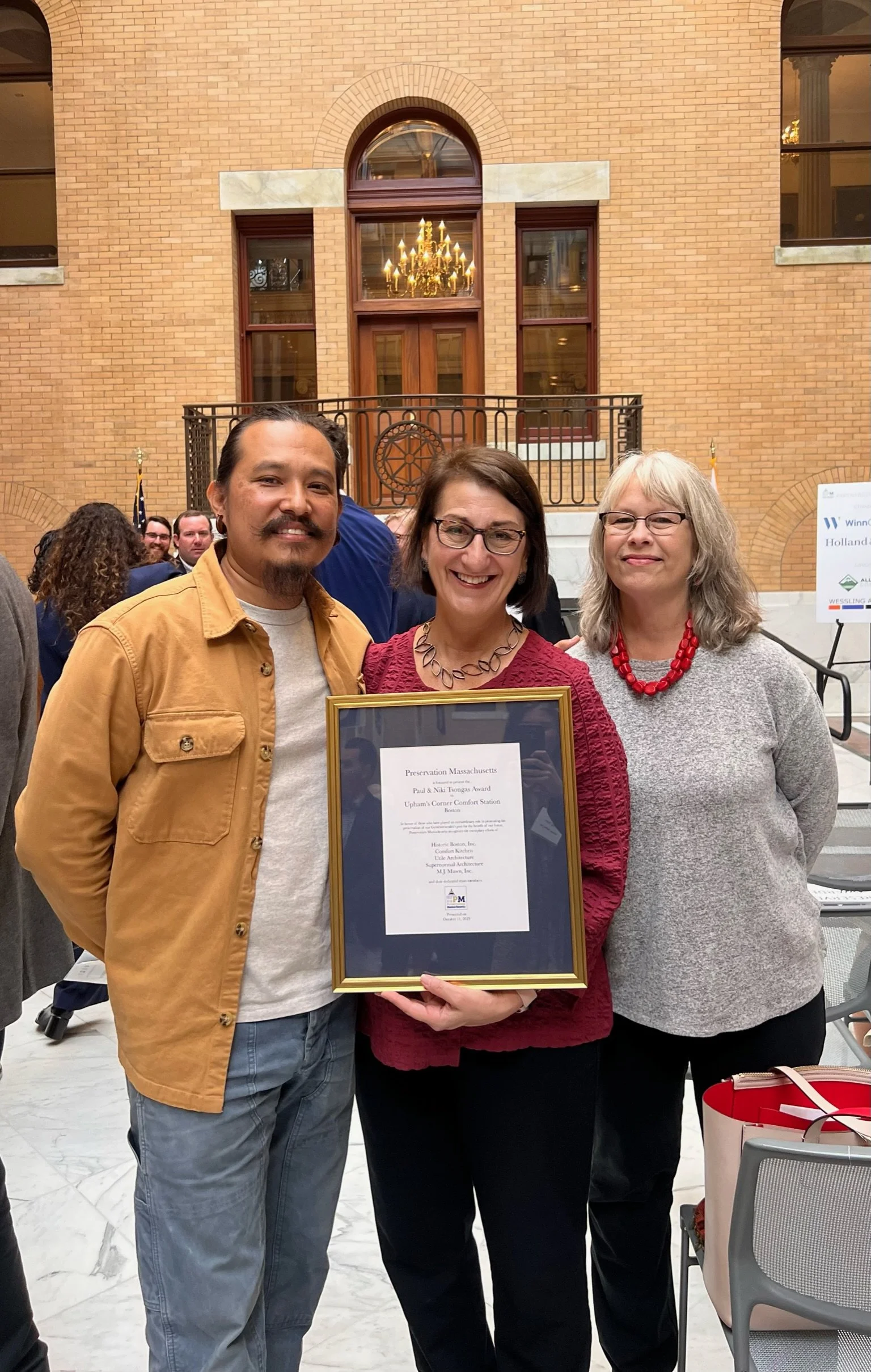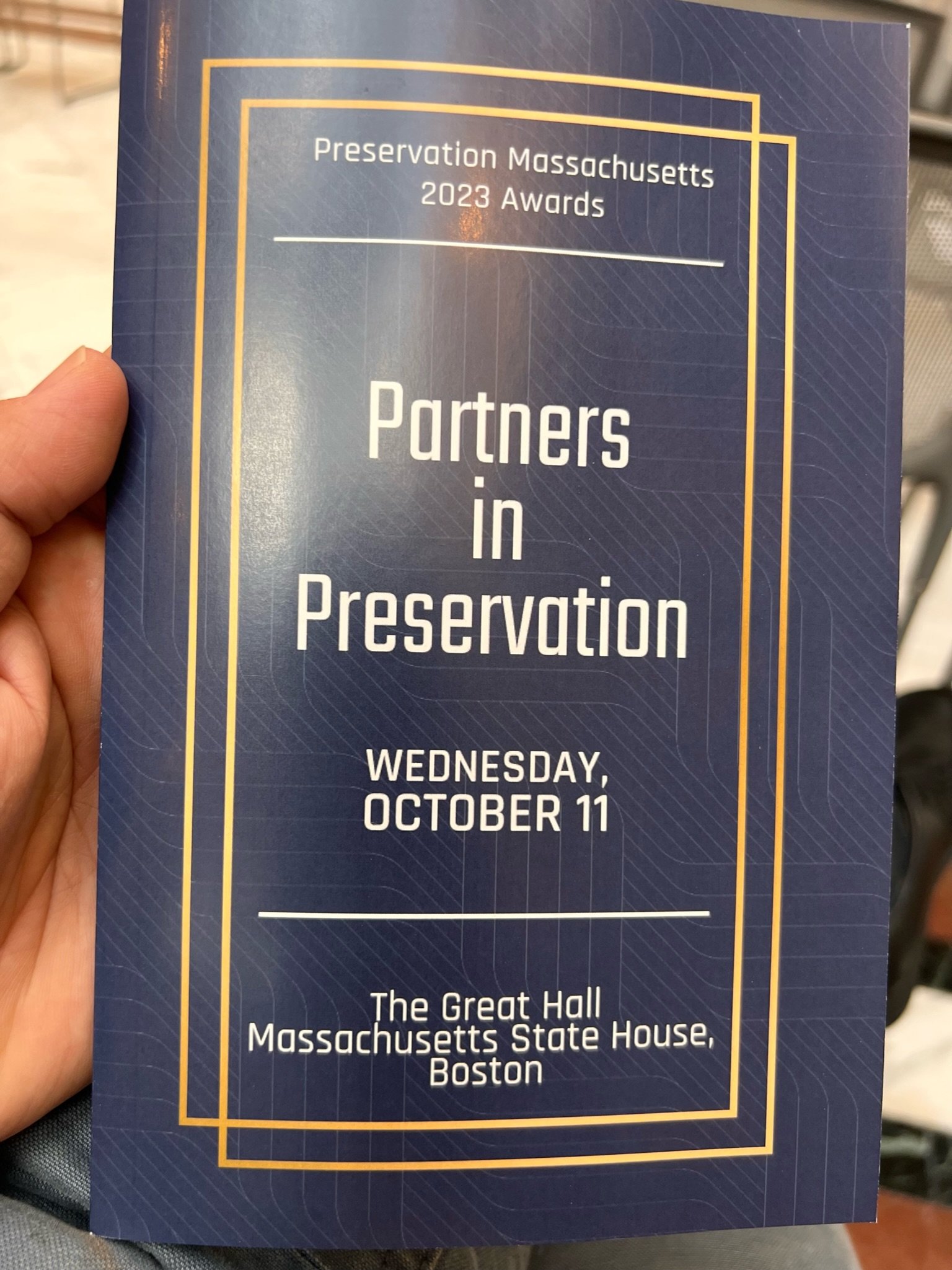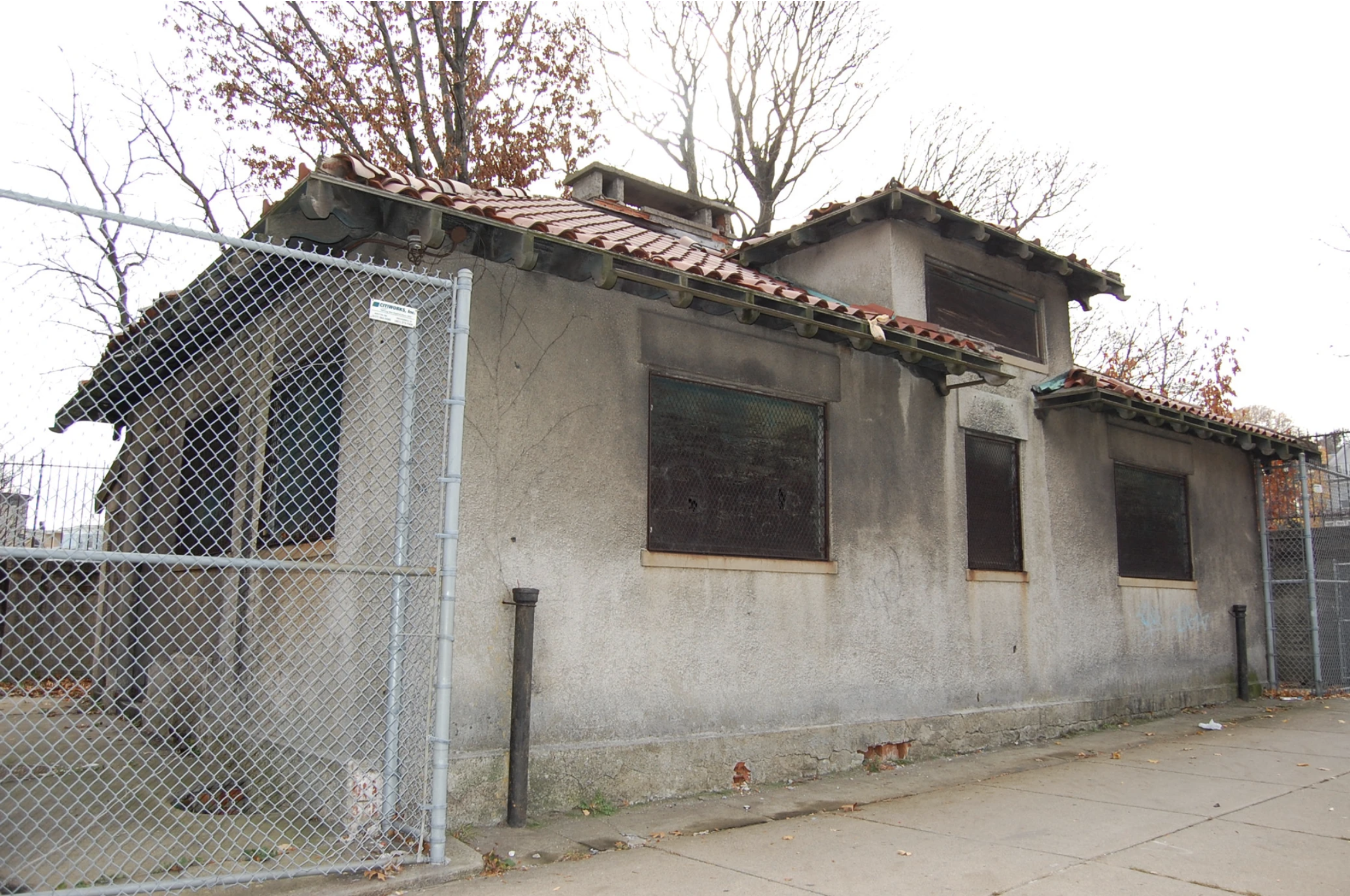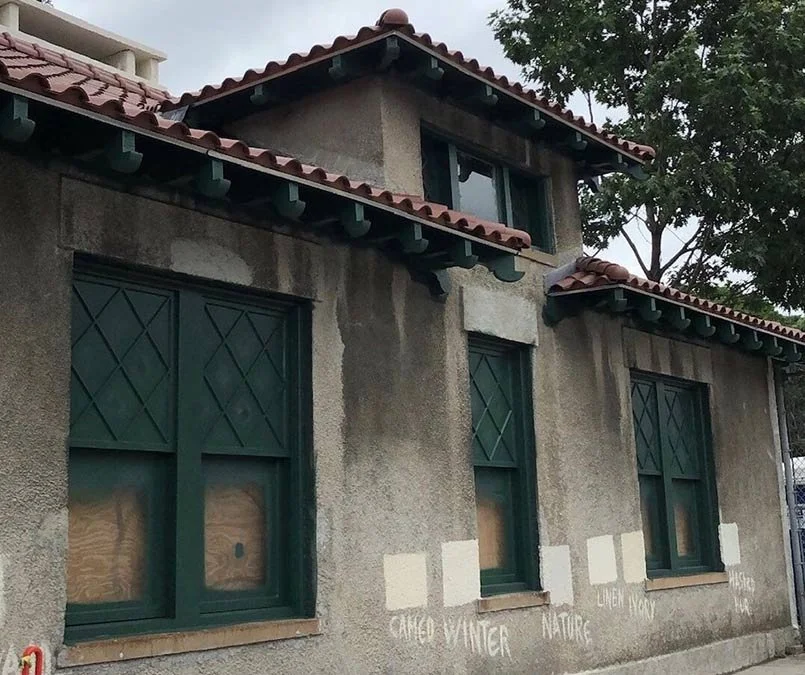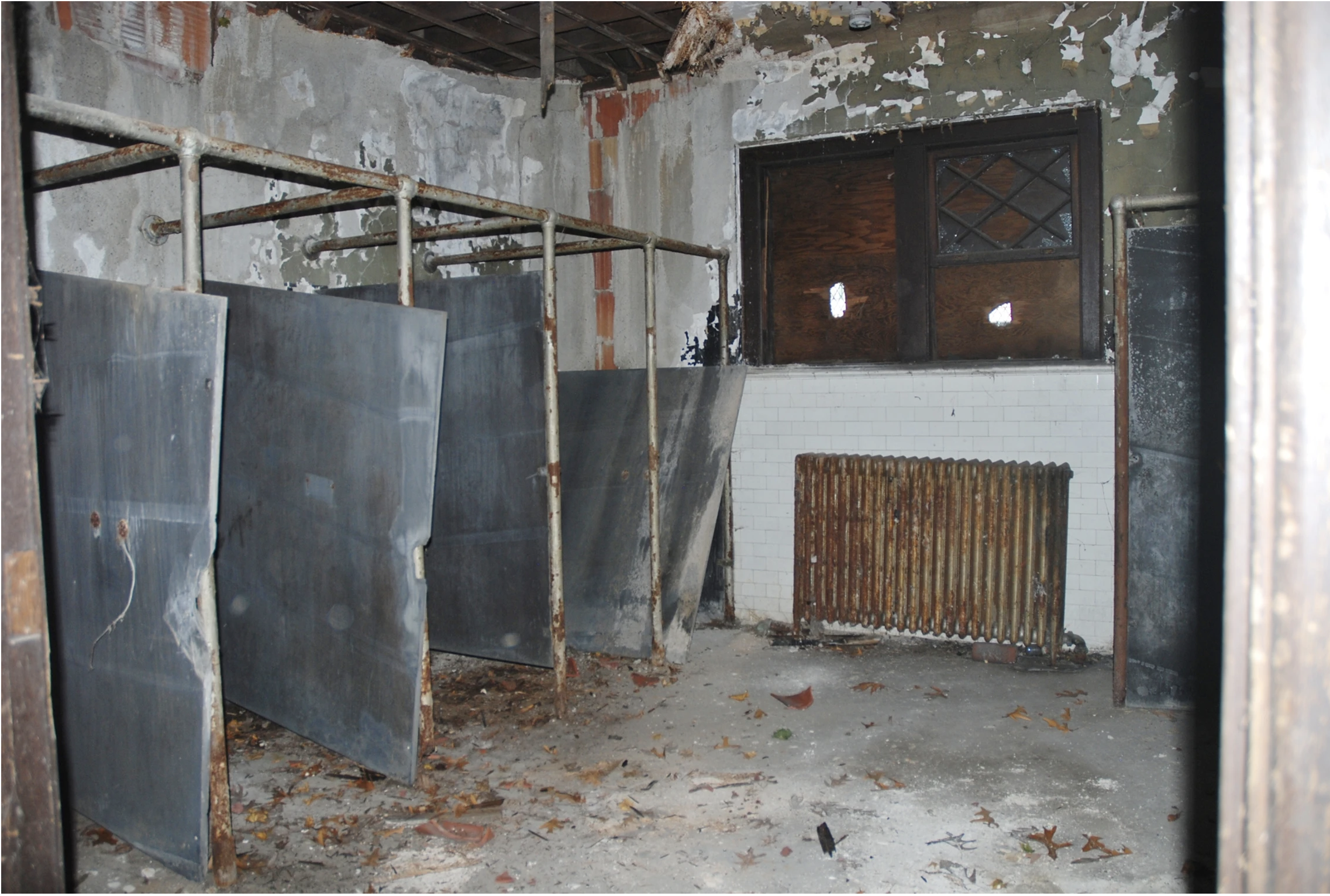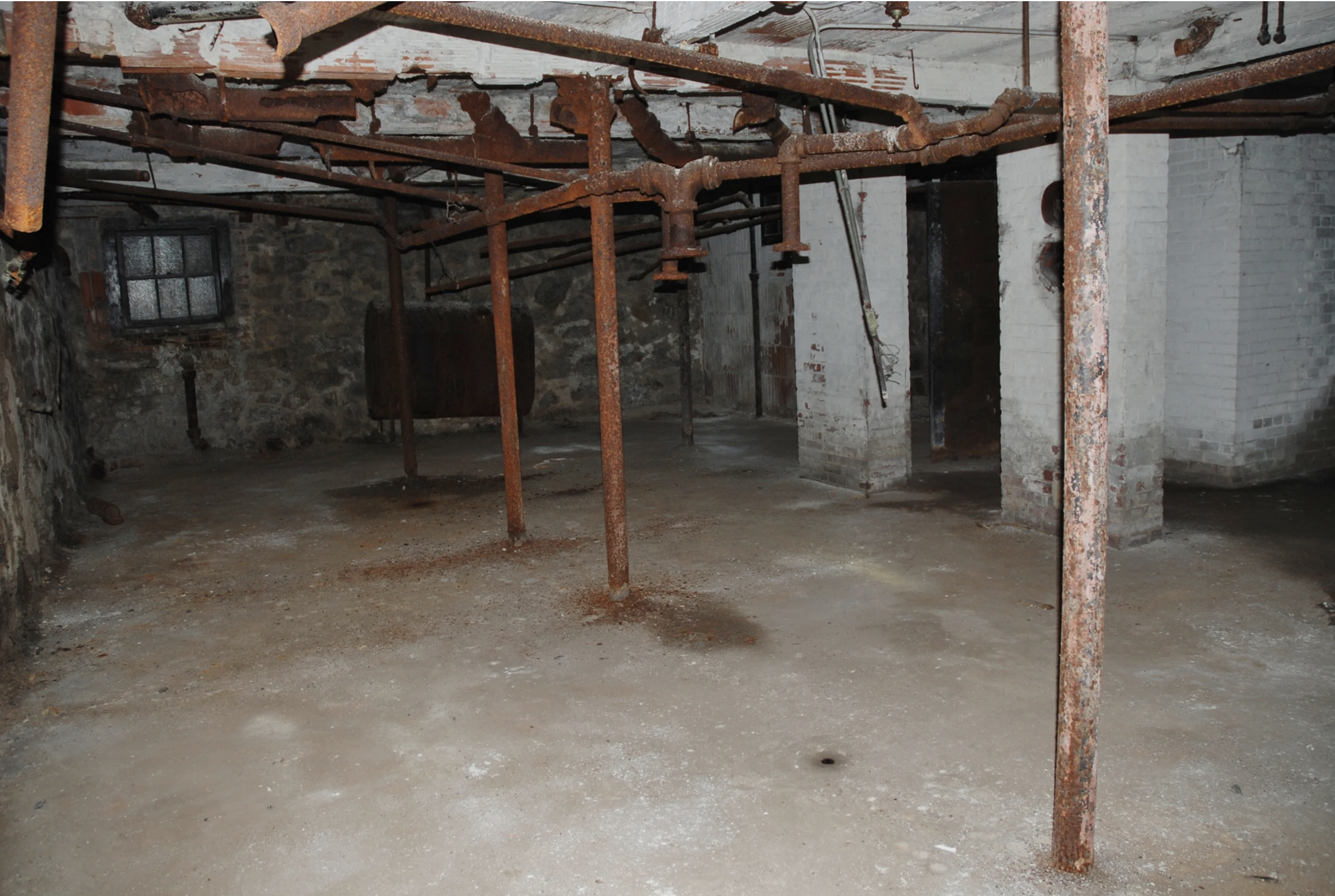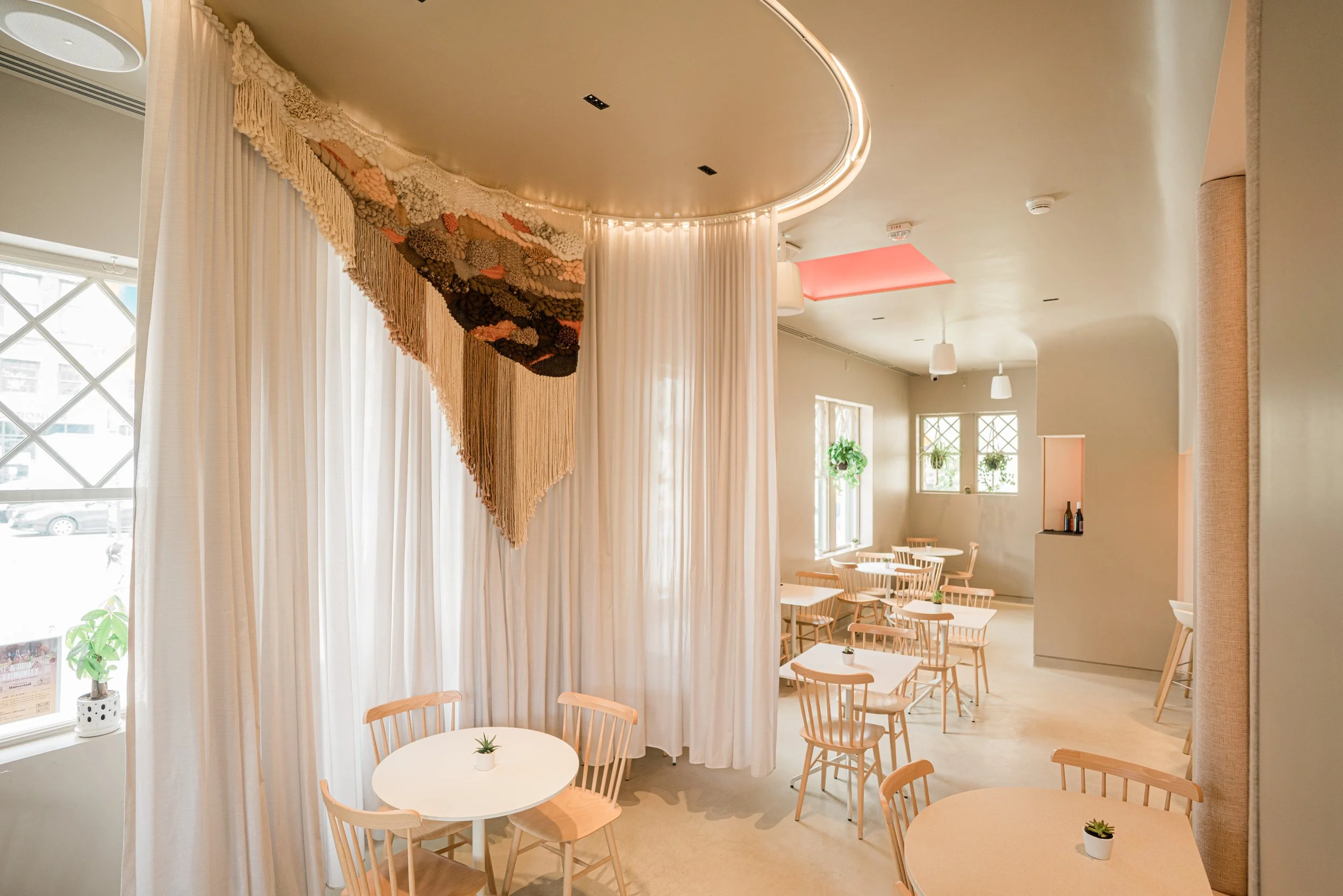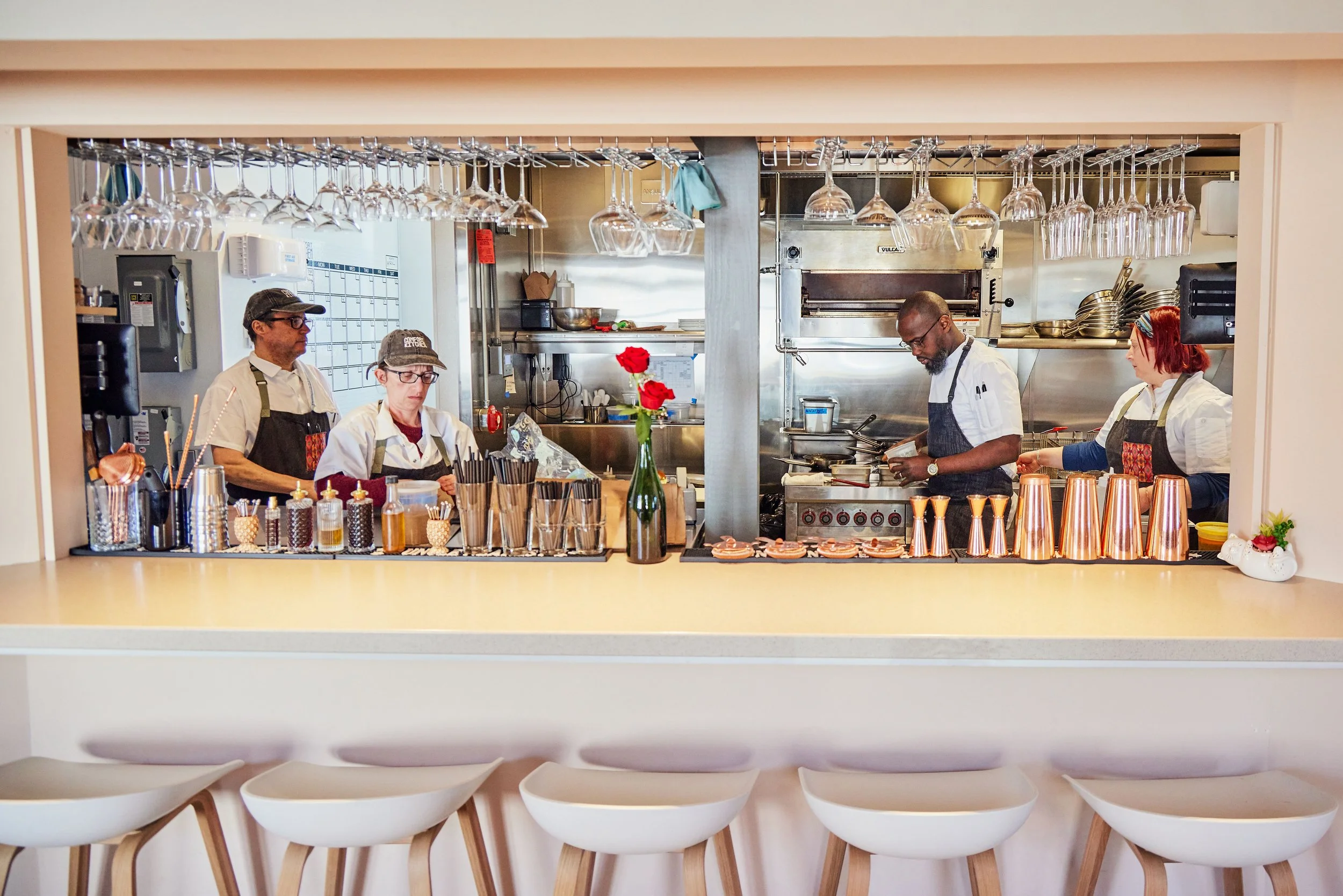Two Preservation Awards for our Historic Building
Our historic building, the Upham's Corner Comfort Station, has been awarded for its renovation work:
Boston Preservation Alliance Achievement Awards 2023 — Read more >
Preservation Massachusetts Awards 2023 — Read more >
Paul & Niki Tsongas Award
The Tsongas Award is Preservation Massachusetts' highest honor, honoring people and projects that have displayed the highest level of commitment to historic preservation in the Commonwealth. Named for the awards first recipient, Senator Paul Tsongas, it was expanded in 2016 to include the contributions of Congresswoman Niki Tsongas to preservation efforts across all of Massachusetts.
Upham's Corner Comfort Station - Comfort Kitchen, Boston
Project Team: Historic Boston, Inc., Comfort Kitchen, Utile Architecture, Supernormal Architecture, M.J. Mawn
The Upham’s Corner Comfort Station sits adjacent to and is part of the Dorchester North Burying Ground, which is both a city of Boston Landmark and listed on the National Register of Historic Places. The charming building was constructed as a public amenity, but since its closing in the 1970s, has not served a public use. After the building fell into disrepair, the City proposed to demolish the Comfort Station, but the neighborhood objected to this idea and advocated for its reuse. Historic Boston, Inc., undertook this challenging restoration project and believe its new use and appearance on the main thoroughfare in Upham’s Corner is a noteworthy community improvement.
The adaptation of a former public restroom into an inviting new retail space was challenging, as was raising funds for the project. The high rehabilitation costs and the small size of the building resulted in a significant cost per square foot. But the neighborhood did not want to lose this building and was inspired by the vision for its reuse by a local minority business enterprise. With a combination of funds raised through the Community Preservation Act (one of Boston’s first CPA projects), Massachusetts Historic Rehabilitation Tax Credits, City of Boston ReStore funds and several charitable sources, construction was finally able to get under way in fall of 2018.
The adaptive reuse of the Upham’s Corner Comfort Station faced many obstacles. The historic street-facing diamond pane windows were small and not desirable for a retail use. Architect Utile suggested matching the front, Columbia Road windows to the rear windows to achieve a much-enhanced visual connection to the street, and also to bring sunlight into the space. The building’s small footprint would be challenging for any new use, but fortunately the unfinished basement that had previously been used as mechanical space had generous ceiling height and therefore could be transformed to useful workspace. Perhaps the most striking architectural feature of the Upham’s Corner Comfort Station is the terracotta roof tiles, which are not very common in New England. While several of the roof tiles were still intact, much of the roof required reconstruction, and many of the original tiles had fallen off and broken. Our team was pleased to find out that the original manufacturer of the tiles, Ludowici, was still in operation in Ohio.
Historic Boston always strives to retain historic features and materials from a building’s original use that can be salvaged and redeployed in the restored structure, as a reminder of the building’s history. There was not much historic fabric that could be reused beyond the building envelope of the Comfort Station, except for two things - a small field of the original bathroom tile floor was retained at each of the two entrances, and the original slate bathroom partitions were cleaned, cut, and reinstalled as wainscoting in the new bathroom.
The newly restored Upham's Corner Comfort Station provides an alternative to fast food in the neighborhood with its new occupant, Comfort Kitchen. It's now a community gathering place rather than a sign of neglect and disinvestment. In the time that HBI has been rehabilitating this building, other preservation projects in the neighborhood have begun and the diverse neighborhood is flourishing. HBI is grateful to the community partners that made the project happen, including The American City Coalition, the local Main Streets district, neighbors who attended meetings and provided crowdsourcing funds, and Comfort Kitchen's partners that provided economic development funding and planning support.

